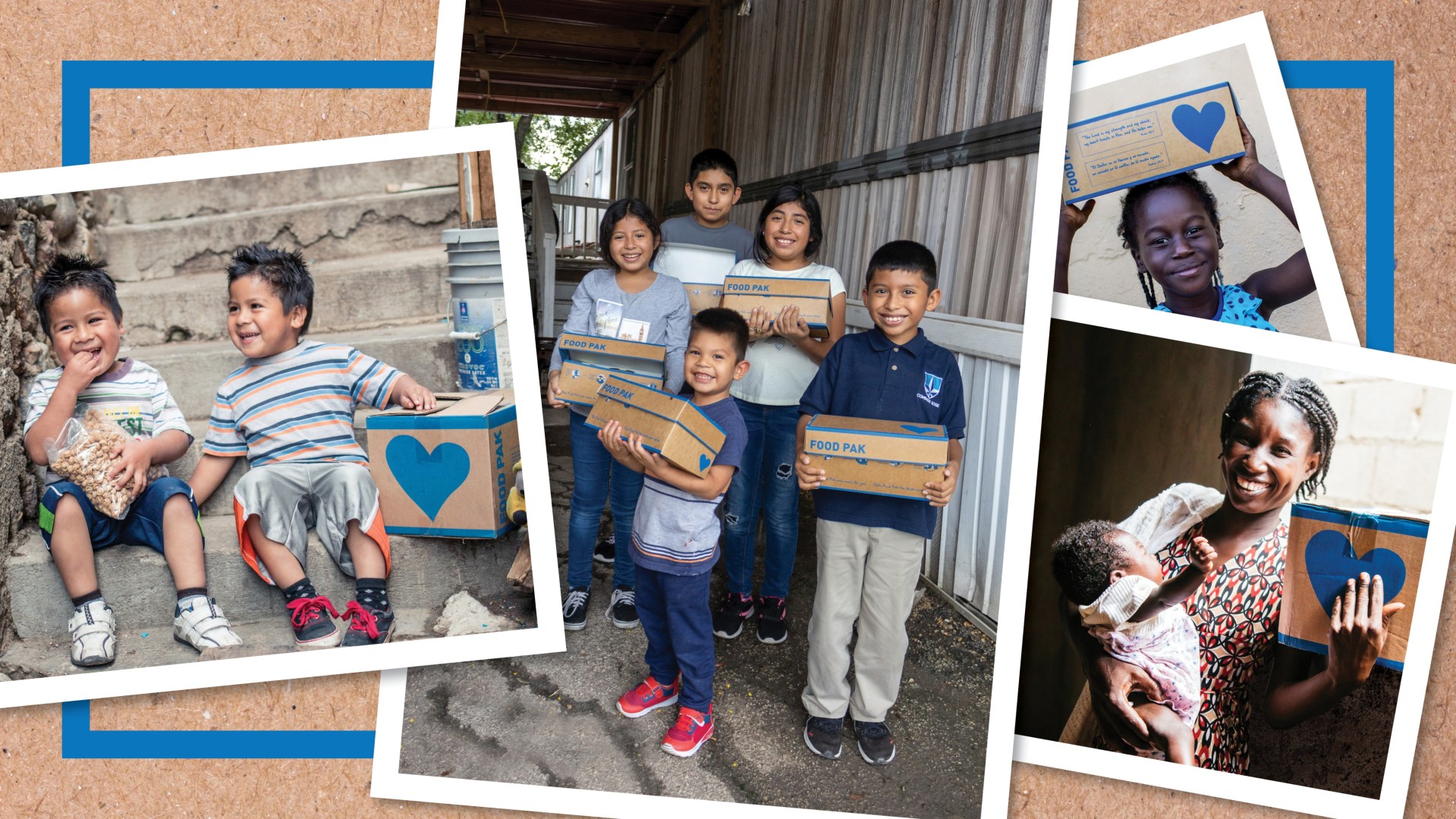Hugo Neri bought 15 acres of land. As a small business owner, Neri needed space to store the large vehicle and tractor tires he repaired and sold for a living. As a husband and father of four, Neri’s investment would provide a consistent workload and profits needed to care for his family. The land represented an opportunity for professional success and family flourishing.
Then, Neri was in an accident. He broke his pelvis and femur. After two surgeries, Neri struggled to move because of chronic pain. Work was out of the question until Neri fully healed. His wife, Elena, had to manage their isolated property, which included replenishing the family’s water supply that was trucked in from town and securing propane for the generator. In addition to caring for their four children, Elena now had to care for Hugo as well.
Quickly, the Neris turned to food stamps, but the allotted assistance was not enough to keep the six of them fed. In a matter of weeks, the Neri family had become food insecure.
Twin Hungers
While the Neris’ story may seem extreme at first glance, the truth is that many American families are one accident or mishap away from going hungry. In fact, one in eight children in the United States lives in a household that cannot afford enough food to meet everyone’s needs. Childhood hunger is linked to profound negative effects, including stunted physical development, low academic performance, and mental health issues. Studies show that these effects can start to occur very quickly—sometimes within a few days or weeks of experiencing inadequate nutrition.
In other words, childhood hunger is a significant and urgent threat in the lives of many American children. Even families who have the time, information, and connections to access government resources still experience levels of food insecurity. Help must come from somewhere else–from someone else–if bellies are going to be filled.
For the Neris, that support came from Jorge Ramirez, Mercy Ministry director at Bethesda Church of God. Ramirez, who originally met Hugo at a local tire shop, heard about the Neri family’s situation and asked if he could visit with food in hand.
The Neris agreed. Ramirez began visiting the Neris every other week, bringing food with him each time. As the Neris and Ramirez got to know one another, Ramirez learned that they belonged to Santa Muerte, or “holy death,” a cult that teaches that death is a holy spirit that defeated Jesus. The Neris regularly prayed and made offerings to an altar in their home so they might be spared from violent deaths themselves. Their physical hunger had been plain from the beginning, but now, Ramirez could see the depth of their spiritual hunger as well.
As Ramirez continued to bring food and offer friendship to the Neri family, he also began to share the gospel with them and even invited them to spend Christmas with his family. Because of the food Ramirez regularly brought to the Neris, the family was able to reallocate their limited resources and purchase necessities like baby formula. Their friendship with Ramirez has grown, leading to conversations about Jesus and, Ramirez says, clear evidence that God is softening the hearts of the Neri family to the truth of the gospel.
Giving Food and Growing Friendships
Just as the Neris’ story depicts the harsh reality of both physical and spiritual hunger for many families, it also describes how hundreds of American churches are combating hunger in their communities. When Ramirez visited the Neri family, he did so with Food Paks—a program of Children’s Hunger Fund (CHF).
Filled with non-perishable items, the Food Paks are assembled by individuals, families, and churches who partner with Children’s Hunger Fund. CHF then provides the Food Paks to trained partner churches who then share them with hungry families in their communities.
“Jesus modeled compassion and mercy in his earthly ministry. So should the local church,” says Dave Phillips, CHF’s founder and president. “It’s not enough to proclaim the good news of the gospel from the pulpit. Nor is simply providing food addressing the issue of spiritual poverty in the lives of those served. We have seen the greatest success when a local church uses the relational strategy of home food delivery to meet both the physical and spiritual needs of those in their community.”
Phillips encourages pastors to proactively address specific needs, like childhood hunger. “Congregants need to be educated from the pulpit to think missionally,” he says, “and then there needs to be a tangible way for congregants to participate in missional work.”
Meet Physical and Spiritual Needs
In Matthew 25, Jesus describes the day when he will “sit on his glorious throne” and “all the nations will be gathered before him.” To those deemed righteous, he will speak to their acts of justice and mercy—among them, “I was hungry and you gave me something to eat.”
“Then the righteous will answer him, ‘Lord, when did we see you hungry and feed you?’ … The King [Jesus] will reply, ‘Truly, I tell you whatever you did for one of the least of these brothers and sisters of mine, you did for me.”
By participating in Project Food Pak, churches can meet both physical and spiritual needs. Pastors and ministry leaders can engage their congregants in filling Food Paks to be sent to areas of need. CHF partners with and trains congregations that distribute food through home visits in their local communities. In doing so, Christians have an opportunity to combat childhood hunger, share the gospel, and by God’s grace, serve Jesus himself.
Learn more about how your church can participate in Project Food Pak.
Posted